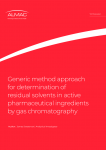Drug disposal not our problem, industry tells Supreme Court

A 2012 ordinance means that drugmakers, no matter where they are located in the US or the world, must fund a “take-back” programme to collect and dispose of their unused prescription medicines sold or distributed in Alameda County in the San Francisco Bay Area.
The “Safe Drug Disposal Ordinance” prohibits companies from charging a local fee to recoup the costs including via local pharmacies or consumers.
Petitioners Pharmaceutical Research and Manufacturers of America (PhRMA), Generic Pharmaceutical Association (GPhA), and the Biotechnology Industry Organization (BIO) complained that the ordinance shifts the financial burden onto “outsiders instead of local residents” and, by extension, “out-of-state consumers”.
Car industry precedent
The 2012 rule replaced a previous scheme run by the county and funded by local taxpayers to collect and dispose of pharmaceuticals.
Alameda’s Health Care Services Agency argued “the safe disposal of pharmaceuticals should be considered a societal need for which the cost to provide should not fall to local government.”
There are precedents for big business paying for the safe disposal of their end products, said Agency Director, Alex Briscoe: “The manufacturers of many other products such as auto batteries, paint and carpets have taken responsibility for end of life and residual product management.”
The view was echoed by several sanitary districts boards.
But while the industry groups acknowledged the “health and safety benefits” for the county’s residents of a refuse scheme, they disagreed with its financing, saying it breaks a clause in Article I of the US Constitution.
“The County violates the Commerce Clause by requiring interstate drug manufacturers to conduct and pay for such programs, thereby shifting the costs of local regulation onto the interstate market,” said the petitioners.
$1,000-a-day fine
The ordinance applies to drug manufacturers and distributors, including the “owner or licensee of a trademark or brand under which the [medicine] is sold or distributed in Alameda County by any person.”
The law allows companies to either run an individual programme or to fund an organisation with other manufacturers.
Part of this requirement is to provide kiosks for patients to drop off unused medicine. The plaintiffs argued that although the ordinance does not require them to collect over-the-counter medicines, in practice companies will have no way to avoid doing so.
Companies which refuse to comply are subject to penalties of $1,000 per day. Deliberate violations are criminal misdemeanours under the law and are punishable by further fines and up to six months in prison.
The Court of Appeals in San Francisco rejected PhRMA’s previous attempt to overthrow the ordinance in September 2014 in a three-to-one ruling.


















